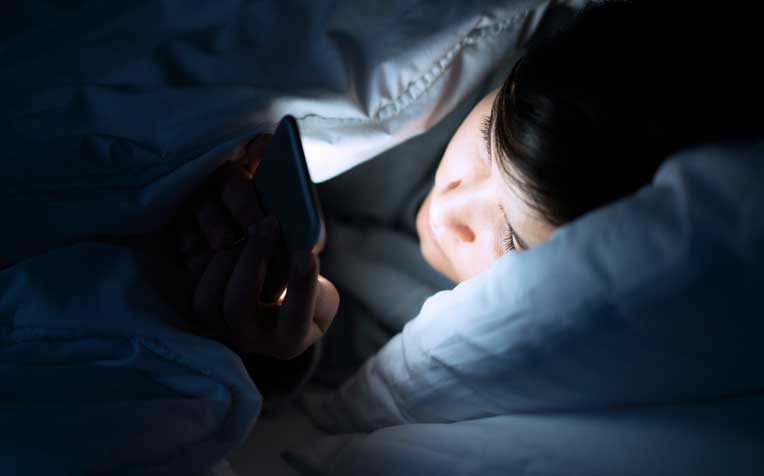
Avoid brightly lit objects such as mobile phones and iPads.
Six tips to overcome sleep problems
Stay away from bright lights at night
This means stop watching television and playing computer games by a certain time. Avoid brightly lit objects such as mobile phones and iPads because light sends false messages to the brain that it is still day, and causes a delay in melatonin production.
Keep your computer or laptop away from your bedroom or bed
This may reduce the temptation to start playing computer games, watch videos, chat with friends or surf the Internet.
Keep a to-do list
Make a list of things you have not done before going to bed. This will ease your mind and stop you from thinking about unfinished business. An overactive mind can cause sleep problems.
Develop a regular sleep pattern
Try to sleep and wake up at about the same time every day. A regular sleep pattern helps you sleep better.
Avoid coffee and caffeinated drinks up to 14 hours before bedtime.
Caffeine is a stimulant which can stay in your body for up to 14 hours. If you are sensitive to caffeine, don’t drink coffee after breakfast or caffeinated drinks after lunch to avoid sleep problems.
Drink a glass of warm milk
Drinking a glass of warm milk is relaxing. An amino acid called tryptophan, found in milk and banana, may help to induce sleep.
“Make small lifestyle changes such as watching less late-night television and refraining from playing computer games late into the night. Sleeping pills are best avoided as they can create a dependency. Only take them if they’re prescribed by a doctor,” says Dr Toh Song Tar, Senior Consultant and Deputy Head (Research) & Director, Department of Otolaryngology, Sleep Disorders Unit, Singapore General Hospital (SGH), a member of the SingHealth group.
If you suffer from snoring and persistent sleep problems, do see a sleep specialist to rule out any underlying medical causes such as sleep apnoea, a condition in which the person doesn’t breathe normally during sleep.
Ref: T12
Contributed by
Related Articles
Public Events
Get the Health Buddy App
© 2025 SingHealth Group. All Rights Reserved.


















 Get it on Google Play
Get it on Google Play